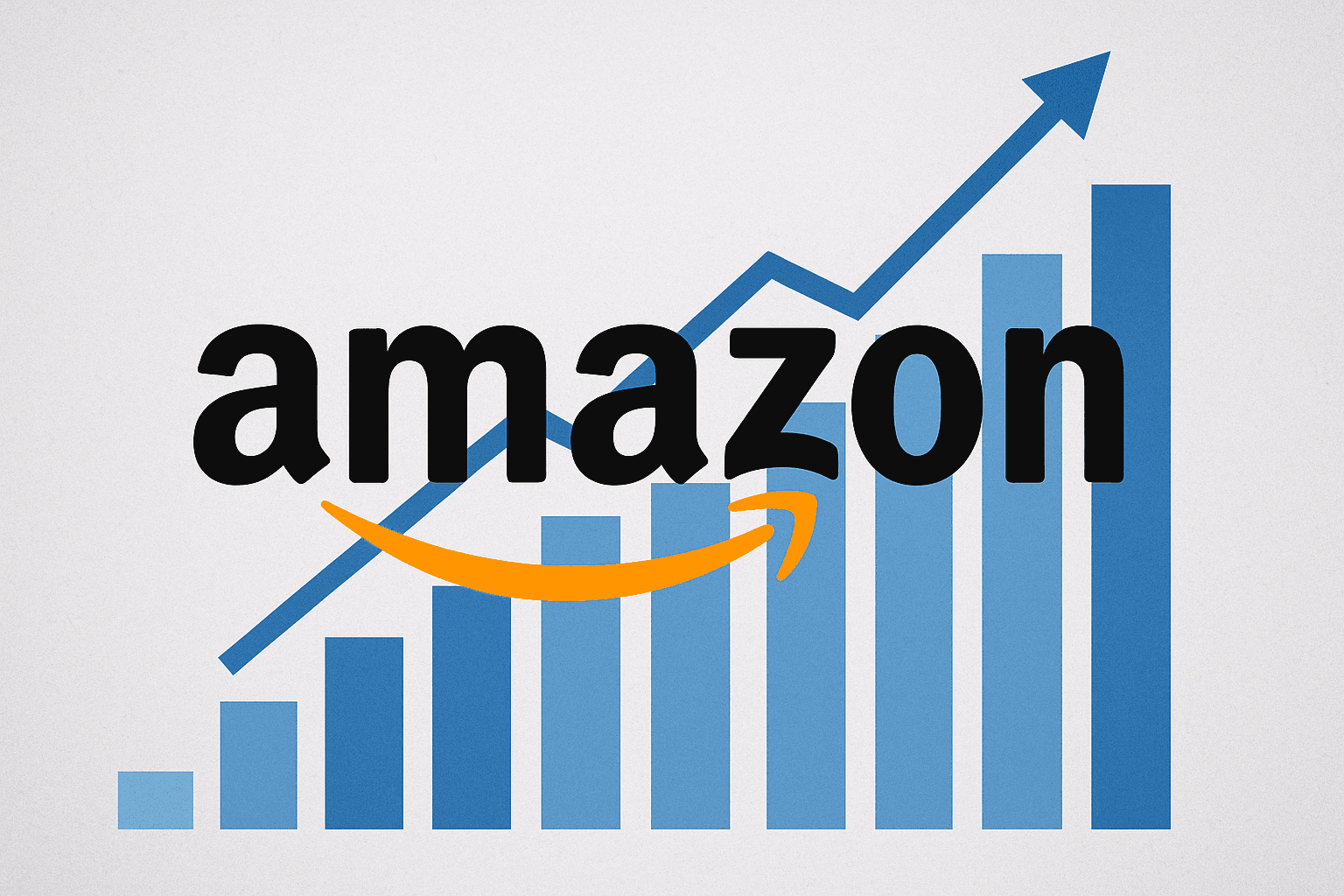Amazon earnings preview: can AWS help the stock catch up with tech peers?

News Summary
Amazon is set to report its third-quarter 2025 earnings today, with investors closely watching the performance of its cloud computing division, Amazon Web Services (AWS). Analysts project AWS revenue to reach $32.5 billion, an 18.1% year-over-year increase, and expect its growth to accelerate into 2026, partly driven by increasing AI workloads. Despite the company's shares rising only about 4% this year, significantly lagging its Magnificent 7 peers, analysts believe the upcoming report could provide a much-needed boost, as expectations hinge on cloud and AI momentum. Wall Street forecasts Amazon's total revenue at $177.9 billion and adjusted earnings per share at $1.57. However, recent challenges such as a major AWS outage, the announced cut of approximately 14,000 corporate roles, and a $2.5 billion settlement with the Federal Trade Commission (FTC) over Prime subscription practices could cloud the near-term outlook and potentially weigh on fourth-quarter operating income guidance. The retail and advertising segments remain bright spots, with advertising continuing its rapid expansion and e-commerce margins improving due to logistics efficiency and the expansion of same-day grocery delivery.
Background
Amazon is a global leader in e-commerce and cloud computing services, with its AWS division serving as a primary driver of company profitability. As one of the "Magnificent 7" tech giants, Amazon's stock performance is often seen as a bellwether for broader technology market sentiment. Entering 2025, there is strong market enthusiasm and investment in artificial intelligence technologies, drawing significant attention to cloud infrastructure providers like AWS, Microsoft Azure, and Google Cloud. Amazon has previously indicated substantial investments in data center capacity to support rising AI demand. The company also faces ongoing scrutiny from regulatory bodies, including the U.S. Federal Trade Commission, regarding the business practices of large tech firms. Recently, Amazon has experienced a series of events, including an AWS service outage, significant corporate job cuts, and a settlement with the FTC, all of which have focused market attention on its operational efficiency and compliance.
In-Depth AI Insights
Is Amazon's perceived stock underperformance indicative of deeper issues, or merely a mispricing of its growth catalysts by the market? - While Amazon's stock has lagged peers this year, the anticipated acceleration in its core AWS growth, coupled with improving e-commerce margins and robust advertising expansion, suggests its fundamentals may be healthier than its stock performance implies. The market might be underestimating the resilience and growth potential of its diversified businesses. - A challenge lies in the analyst caution that AWS customer spending trends appear "less robust" than those for rivals like Microsoft Azure and Google Cloud. This could reflect increased corporate caution in cloud spending or intense competition for new AI workloads. - The key for investors will be to see if AI demand translates into tangible acceleration in AWS revenue and if retail and advertising can consistently generate healthy free cash flow to justify its premium valuation. What are the deeper implications of recent operational challenges (outage, job cuts, FTC settlement) for Amazon's long-term strategy and investor confidence? - The AWS outage highlights the criticality of cloud service reliability, potentially prompting customers to diversify their cloud providers and posing a long-term risk to AWS's market share, especially amid existing growth challenges. - The cut of 14,000 corporate roles signals Amazon's strategic focus on efficiency and cost control in the current economic climate, aiming to streamline operations and reduce bureaucracy. This could lead to short-term disruption but contribute to improved margins and free cash flow long-term. - The $2.5 billion FTC settlement foreshadows potentially intensified antitrust and consumer protection scrutiny for big tech during the Trump administration's tenure. This not only directly impacts operating income but could also limit future M&A activities or force Amazon to adjust its business models, affecting its capacity for innovation and expansion. Given the Trump administration's potential policy leanings towards domestic economy and tech regulation, how might Amazon's strategic positioning interact? - Amazon's expansion of same-day grocery delivery to 4,000 smaller U.S. towns and cities, alongside its continuous increase in data center capacity, aligns well with the Trump administration's "America First" agenda and emphasis on domestic investment and job creation. - This domestic expansion strategy could potentially earn Amazon some policy goodwill, especially within a context of potentially stricter regulatory scrutiny. By bolstering its economic footprint domestically, Amazon can more closely tie its growth narrative to national economic interests. - However, the FTC settlement indicates that even companies aligning with domestic growth trends are not immune to regulatory pressure. The Trump administration may remain vigilant regarding tech giants' market dominance, seeking to ensure fair competition through antitrust measures, thereby balancing its policy objectives.